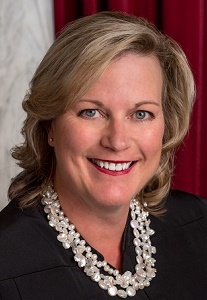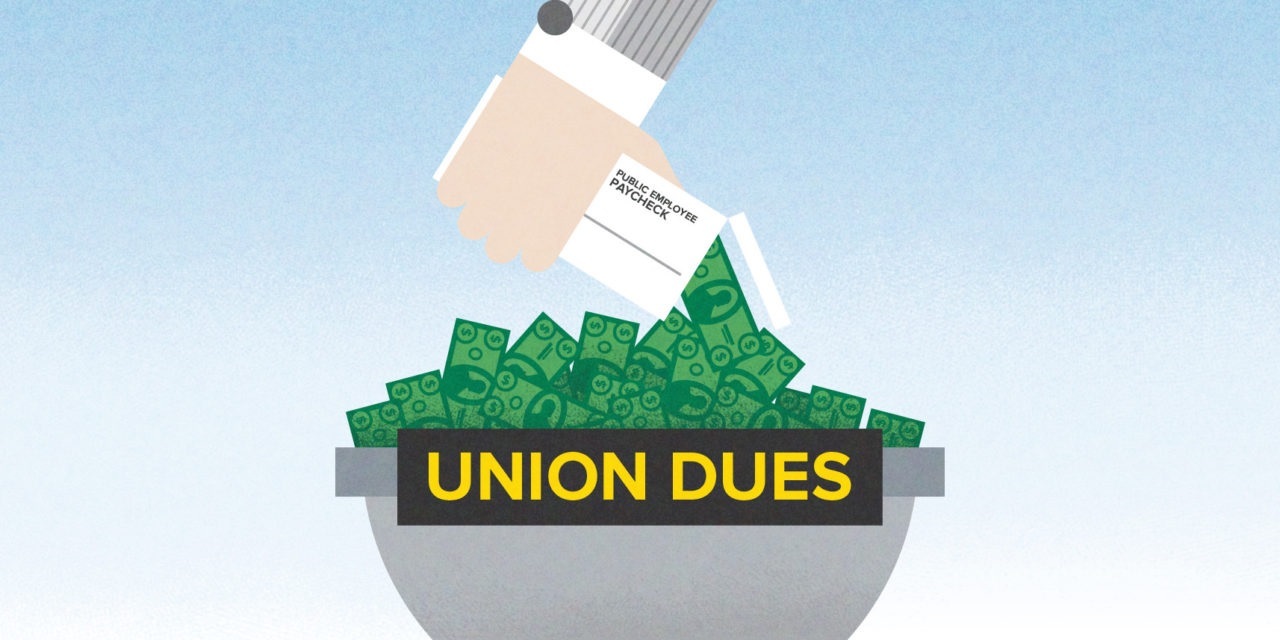CHARLESTON – The state Supreme Court says labor unions wouldn’t be overly burdened if dues no longer are deducted from public employees’ paychecks.
In a 3-2 opinion issued November 22, the justices sent the case back to Kanawha Circuit Court and ended a temporary restraining order that had been issued by Kanawha Circuit Judge Tera Salango.
“A preliminary injunction is a powerful remedy that should issue only after a court has carefully considered the parties’ arguments, evidence, and relevant authorities,” Justice Beth Walker wrote in the majority opinion. “Our review of the circuit court’s order preliminarily enjoining the new law from taking effect reveals that it is a product of less than careful consideration.”

The Supreme Court heard arguments in the case in October. In June, Salango issued the preliminary injunction preventing House Bill 2009, also known as the Paycheck Protection Act, from taking effect.
“The governor and many members of the Legislature have not hidden their dislike for the labor unions,” Salango wrote in her injunction. “There have been open attacks on the unions in the media, and they are welcome to criticize whoever they please but when a law is passed that treats a certain group differently from others, then it should be subject to additional scrutiny.”
The unions contend the Paycheck Protection Act targets public employee unions. The government says the act is meant to keep public employers from having to process union dues as a payroll deduction. If it goes into effect, the law would prohibit public employers from making payroll deductions for union, labor organization or club dues or fees.
State Solicitor General Lindsay See, who argued before the Supreme Court on behalf of Gov. Jim Justice, said the law doesn’t harm unions and is constitutional.
In a dissenting opinion written by Justice John Hutchison and also signed by Justice William Wooton, the pair said Salango’s preliminary injunction simply was an attempt to bide time while the case was being examined more closely.
In the dissent also issued November 22, Hutchison said the majority opinion went too far by ending Salango’s preliminary injunction. He also said the majority was out of line in predicting the unions’ case wouldn’t survive a full hearing.
“By dissolving the preliminary injunction, the majority has ensured that any victory by the respondents on remand will be pyrrhic, at best,” Hutchison wrote. “First, once this court’s mandate has issued and the injunction is dissolved, the horse will be out of the barn.
“Second, it is clear from the majority’s opinion that no matter what the circuit court may do or say, this case has been decided and the Paycheck Protection Act will be upheld when the case reaches this court again.”
The new law applies to government employees at the local, county and state levels as well as school personnel who belong to labor unions.
“For respondents (unions) to prevail, it must ‘appear beyond reasonable doubt’ that the Legislature exceeded its authority under the West Virginia Constitution when it enacted HB 2009,” Walker wrote for the majority. “Respondents’ evidence in support of their claim of irreparable harm is thin, at best. … The length of time Respondents had relied on wage deductions to collect members’ dues did not change the fact that dues are easily collected by other means,” she wrote for the majority.
Walker said unions could follow the lead of other groups by having dues withdrawn directly from members’ bank accounts or credit card accounts.
State Attorney General Patrick Morrisey hailed the majority opinion and said his office is eager to argue the case back in Kanawha Circuit Court.
“We have consistently said that the West Virginia Constitution does not require the state to seize public employees’ wages and direct them to unions,” he said. “The court’s decision prevents the hard-working people of West Virginia from having their hard-earned money diverted for speech and activities they never intended to support.
“The West Virginia Paycheck Protection Act places unions in the same position as the many other businesses and organizations who must collect their own fees from willing customers or members. It will ensure that employees are truly consenting to any fees or dues that may be taken from their pay.”
West Virginia Supreme Court of Appeals case number 21-0559 (Kanawha Circuit Court case numbers 21-P-156 through 21-P-169)
